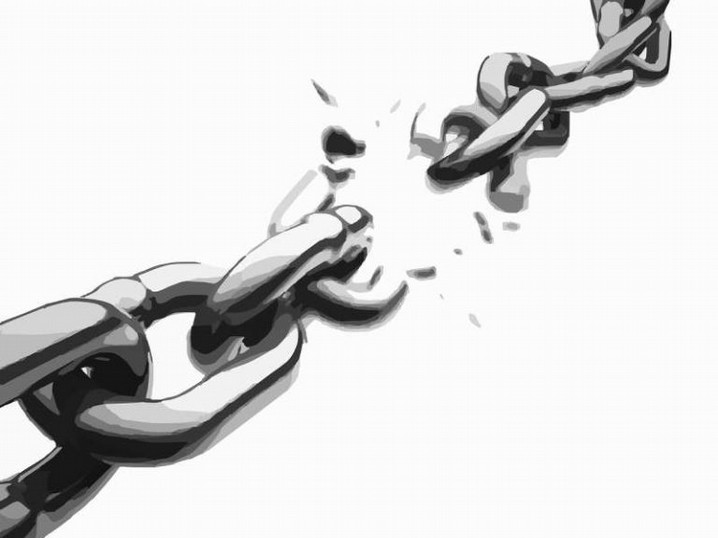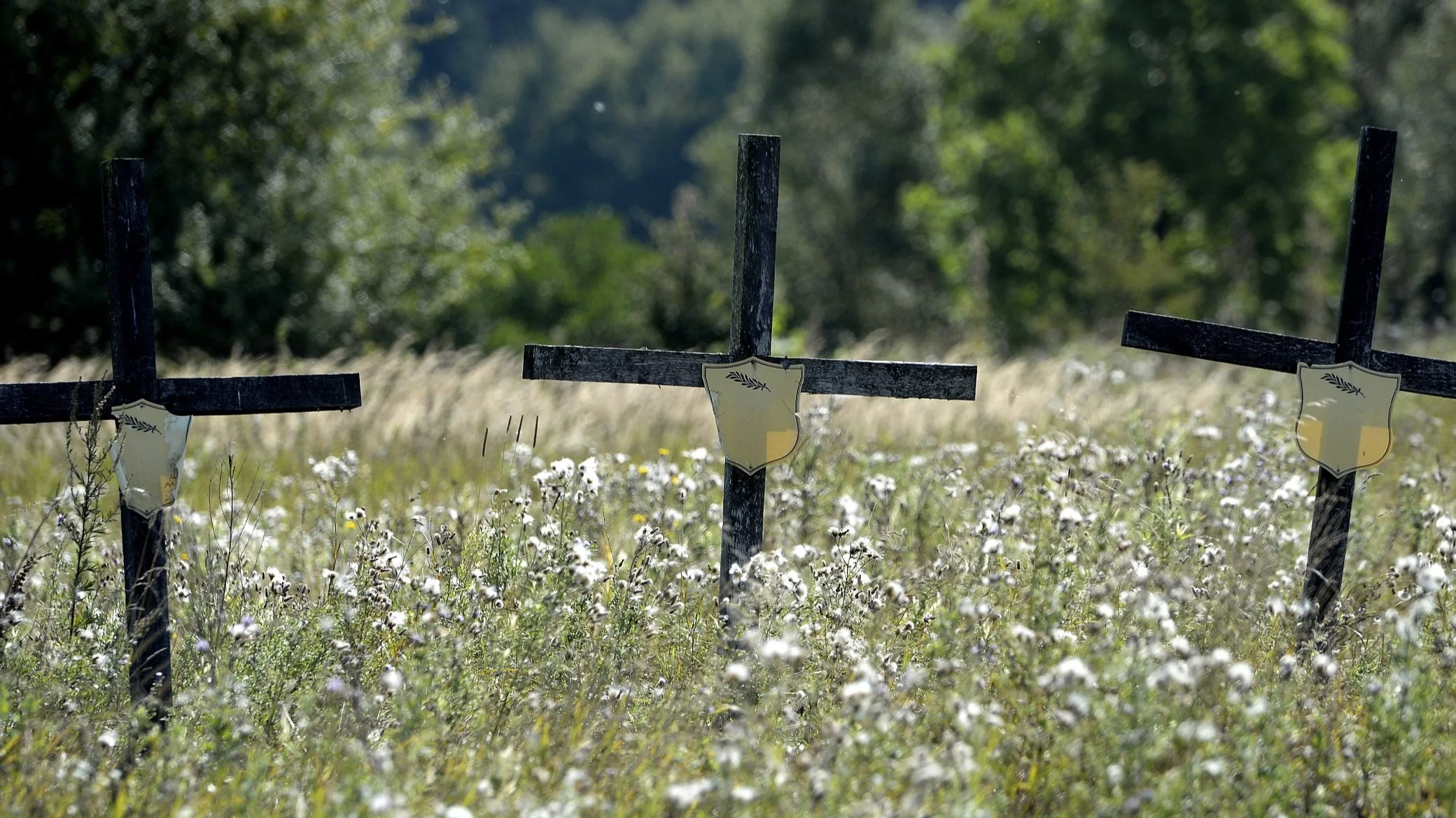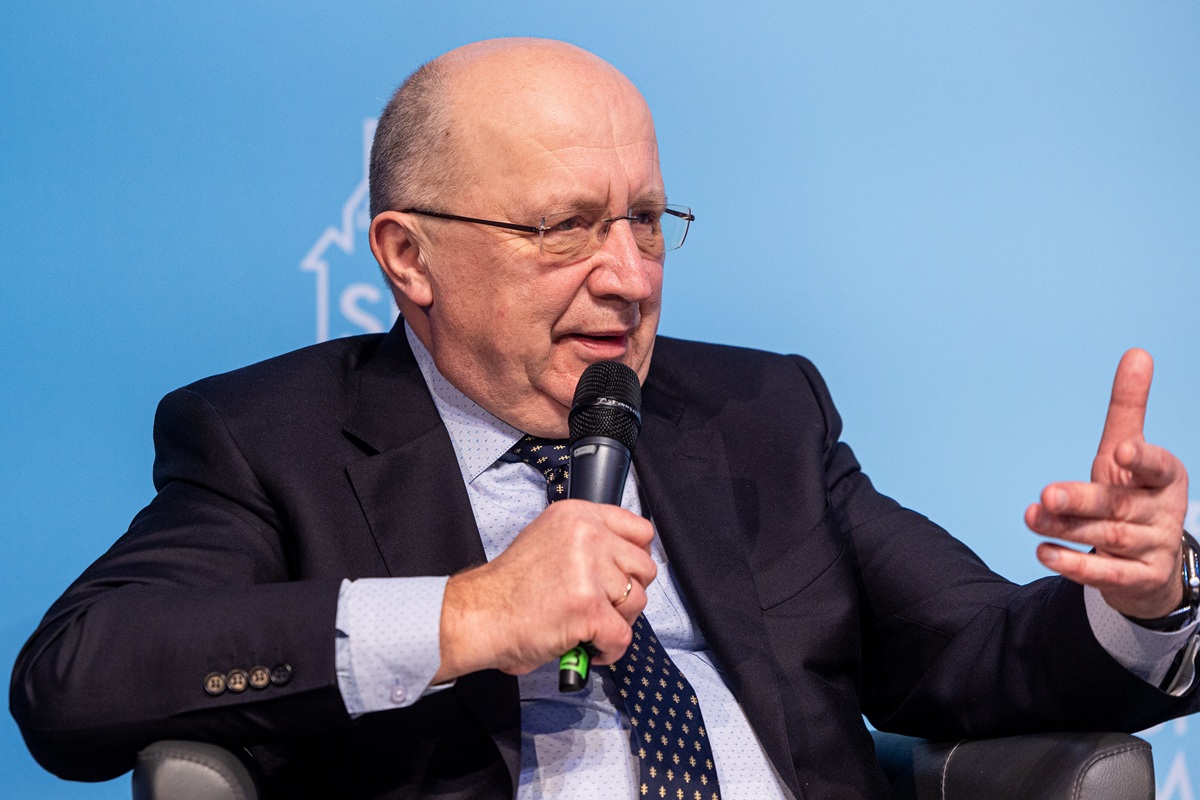 The broken plaque with the names of the bander criminals became a adequate pretext for the Ukrainian manager of the IPN to refuse the exhumation and commemoration of victims of massacres in Volyn and east Małopolska.
The broken plaque with the names of the bander criminals became a adequate pretext for the Ukrainian manager of the IPN to refuse the exhumation and commemoration of victims of massacres in Volyn and east Małopolska.The Institute for the Purgatory of the Nation or Novopolak Institute for Preparation – in my opinion, these are the only rational extensions for the shortcut IPN, formally meaning ‘Institute of National MemoryIt’s okay. ” The first of the terms has its reasons, among others, in the attribution to Poles by this institution of execution on judaic residents of Jedwabny. The second word has to do with negating the merits of people or formations standing in defence of Poles (video: Internal safety Corps fighting gangs UPA), while creating anti-Polish criminals, including flags.
By the way – in the last case, the IPN has even its strong idol in the form of a certain Józef Piłsudski. Yet those who appreciate the facts know this Lithuanian creature (‘I sly Lithuanian was) not only as an Austrian and German spokeswoman, Protestant baptization, coward (difficulty from being chief chief before The conflict of Warsaw), self-appointed marshal and advanced syphilis, but also, more specifically, as a direct perpetrator of the death of hundreds of thousands of citizens of the Republic of Poland. This horrifying size consists not only of the 1926 May coup but besides of the alleged Kiev expedition (1920) and the Treaty of Riga (1921) under which the victorious Poland supposedly left a crucial part of the Poles' Borders in the number of about 1 and a half million. At least 1 3rd of them were murdered or died as a consequence of exiles, catorga, and famine. Let the image of the “great Ziuk” in Chestnut be placed in the honorary place in the Gdańsk branch of the IPN (see image below).

It seemed to me that the officers of the Institute for the Bleaching of the Nation would never surprise me again. I was very wrong. It was adequate to read an IPN message published on June 21, referring to an interview given by a certain individual Anton Drochniki, Head of the Ukrainian Institute of National Memory (what a akin name!). The content of this message shocks so much that I contacted the signed under it Rafał Leszkiewicz, manager of the Office of the Press spokesperson and at the same time spokesperson for the Institute of National Memory. I wanted to make certain who was assigned the opinions and wording contained in the statement; him as a spokesman, or the IPN as a whole? It turned out that the latter, and even more specifically; the message is an expression of the views of the IPN management, including its president Karol Nawrocki.
In his interview, posted on the portal on June 16th this year glavcom.ua Drobowycz (pictured below) goes to many apparent slanders and accusations against Poland, but 1 thing is peculiarly important: there will be no consent to "exhumations of Poles buried (emphasis on mine – H. Jez.) in Ukraine due to the fact that Ukrainian graves in Poland are inactive at risk”. As the most eloquent example he gave the demolition of the plaque on the grave of criminals from CNS-UPA in the Podkarpackie village of Werchrata on the monasterz hill (see image beginning text). For the head of the Ukrainian IPN an isolated act of vandalism towards the monument – let us emphasise it clearly – erected illegal In 1993, it becomes a adequate pretext for not agreeing to exhumations and Christian burials of at least part of nearly 200 1000 Polish victims of the bander genocide. Insolence, bluntness, spontaneous eruption of Jewish-Cossack genes? How about a full awareness of the unlimited impunity in relations with the submissive Lachs?
 Director of Ukrainian IPN Anton Drobowycz in the function of a militant with Russian invaders. Are the axe and pickaxes enough?
Director of Ukrainian IPN Anton Drobowycz in the function of a militant with Russian invaders. Are the axe and pickaxes enough?In answering these questions, it is worth to mention who Anton Dobowych himself is and what in the structures of the Ukrainian pseudostate built on the foundation of the German ideology is the local IPN. Let's start with the president of this institution. It's a disposable clown created as a hero combining an active fight on the front with acting as the head of the institution shaping the historical consciousness of Ukrainians. In fact, Dobownicz is an average decoupling posted on the deep back of the front so that he can safely combine the function of e.g. “conservator” of axe and pickaxes (see photograph above) with the function of the head of the institution deciding the posthumous destiny of thousands of victims of Ukrainian genocide.
Yeah. Is the Ukrainian IPN an institution, if not more serious, at least equivalent in formal competences awarded to IPN in the Polish version. Nothing like that. “Our” IPN is appointed by the Sejm, after prior acceptance of the legislature and as specified has the position of a government independent body, as well as e.g. Supreme Chamber of Controlwhose independence, in peculiar under the direction of the president Mariana Banasia – to question no way. Meanwhile, IPN banderowski is only 1 of the departments of the local Ministry of Culture and Information Policy under the Council of Ministers, and later – a judaic jester in the rank of President.
The above position of Anton Dobowych in the structures of Ukrainian power is simply a adequate pretext to halt at the only rational consequence from the Warsaw IPN; a sharp protest directed at least to direct superiors of the head of the Kiev IPN against his lies and, more importantly, the unacceptable dependence of possible consent on the exhumation of Ukrainian execution victims on the restoration of the board with the names of OUN-UPA bandits on an illegal monument.
Unfortunately, the message of the management of the IPN with its president Karol Nawrocki at the head is more like the scowling of a mutt wrongly hit by his master than the natural, decisive reaction of a serious – at least by definition and power – institution.
At the outset, the authors humbly agree that the fundamental issues determining cooperation between Polish and Ukrainian institutions are "historical fact and honesty". Personally, I would like to remainder only on the fact itself, due to the fact that the 1 with the adjective "historical" suggests relying not on facts, but on historians who know well what "historic truth" employers anticipate from them, most frequently the budget, or paid from our taxes, but besides representing a abroad agent called upper-volt foundations.
And then we get to know the wording that confirms that IPN officers, including those operating in its structures, Commission of Crimes Against the Polish Nation, they are doing a large deal to guarantee that the sensitivity of the bander's spawns, which besides prove present that the murderous genes have not lost. We are so informed of the message that:
(a) Poles in Volyn and east Małopolska were murdered between 1943 and 1945 by "criminal formation of Ukrainian Insurgency Army".
Apart from the fact that the murders lasted at least until 1947, it is worth noting that within the UPA there was no separate “criminal formation” due to the fact that killing Poles was a “speciality” of all members of this organization.
(b) After the demolition in January 2020 of the plaque with the names of 62 UPA members in the village of Werchata, the Polish side recreated a plaque with inscription in Polish and Ukrainian languages. On the another hand, the list of names has been omitted, due to the fact that “it raises serious concerns about the Polish side and requires verification”. These reservations were presented to the Ukrainian side. IPN adds in its message that in June 1995 Andrzej Carrier, Secretary Council for the Protection of Combat Memory and Martyrdom, led to an agreement with Ukrainian Union in Polandwhich became the basis for legalising the monument, erected illegally in 1993.
And, please, the representatives of a nation murdered in a beastly manner by the bander without any peculiar hold legalize the monument in honor of respective twelve of them, and now do not agree that the names of the criminals should appear on the reconstructed plaque. Indeed, you are madly “tourage”...
Despite the unique meekness towards the Ukrainian side (the above example is not the only 1 of this kind), this 1 someway does not want to consent to both search and exhumation works of Polish archaeologists. In order to strengthen their arguments on this issue and most likely to prove that the flags of the genus A. Drobowicz unwarrantedly beat the Polish authorities after friendly mouths, the IPN-owski message contains a list of conclusions which either have not yet been examined or have met with a decisive refusal. It's very informative reading. The following are any facts:
Pieniacka Huta, (Lviv Oblast).
As part of the work undertaken, it was planned to find burial sites for victims of the pacification action of the Polish civilian population of February 8, 1944, resulting in the death of about 1,000 people. The crimes were committed, according to an investigation of Polish IPN, by soldiers of German Ukrainian nationality from 4th SS14 Police Regiment of SS “Galizen” Division, under the command of the German captain, along with the surrounding branch Ukrainian Insurgency Army (UPA) and a paramilitary unit consisting of Ukrainian nationalists, under command Vladimir Czerniawski. On February 18, 2020, a search work application was submitted in the Faculty of Architecture of the Lviv Administration. On April 15, 2020, the administration sent a request to the Ministry of Culture, Youth and athletics of Ukraine and to the Ukrainian Institute of National Memory; response over 3 years was not achieved.
Table (Lviv Oblast).
Search for the remains of 2 soldiers National Army (known by name, surname and rank) from the Lt. Onufrego Kuźniaar “Popiel”, the defenders of the villages died during her defence in 1944. On February 18, 2020, an application was submitted to the Faculty of Architecture of the Lviv Administration for approval of search works; On April 15, 2020, the administration sent a request to the Ministry of Culture, Youth and athletics of Ukraine and to the Ukrainian Institute of National Memory; response over 3 years was not achieved.
Little Hods (Volyński circuit).
The search work by IPN was graved by Fr. Józef Szostak and brother Peter Mojsijonek, who died on April 5, 1943 in a forest close small Holo. On January 21, 2020, an application was submitted for search work for the Faculty of Culture in Lutsk. The proposal was not accepted. After the appeal procedure, the Department of Culture on 12 May 2020 yet refused to give consent.
Tynne (Revian circuit).
Searching for the burial site of soldiers of the Border defender Corps – continuation of search work conducted since 2012 under the patronage of the b. Council for the Protection of the Memory of Combat and Martyrdom. On 4 February 2020, an application for investigation was submitted to the Faculty of Culture in Plains; the work programme was accepted by the same administration. On 2 March 2020, an application was submitted for approval to work for the Ministry of Culture, Youth and athletics of Ukraine. Answers not received today.
Similar proposals were made by the Polish side in connection with the request to undertake search works for victims of Operation NKVD 1937–1938, September 1939 or Katyn Crime. They were all dealt with by the Ukrainian side Negative be no consequence was received.
The above list, as well as the further comprehensive explanations contained in the statement, is simply a crowning argument for the IPN officers that they do not deserve criticism from the Ukrainian manager of the IPN, at the same time the gamegoer "fighting" on the deep back of the front. But it's apparent to us shame list and confirmation of the powerlessness and compromising mongrism towards the authorities of the state, whose maintenance costs Poles tens of billions of PLN.
His message by the president of the IPN, Karol Nawrocki, concludes with a solemn appeal:
‘The upcoming 80th anniversary of the genocide in Volyn may become an chance for Ukraine to close erstwhile and for all the substance of settlement with painful, both Ukrainians and Poles, the past. Anton Drobovich's interview, filled with false statements and misleading public opinion about the real state of affairs, surely does not service this purpose.
It is time to replace the gestures and declarations with actual actions which will enable the Polish IPN to undertake search and exhumation work to commemorate the innocent victims of the genocide in Volyn and east Małopolska - a crime that will affect our relationship.”
I hope he's not amazed by the zero effectiveness of his expectations. Anton Drobowycz – likewise to most of the post-Bander's "elity" – showed precisely what part of the body he places the rations and arguments from the Polish side. And this is precisely where advanced officers of the Polish version of the IPN crawl. It's not hard to figure out what they're gonna do erstwhile they get there...
Henryk Jezierski
Photos: Public domains
(28.06.2023)














